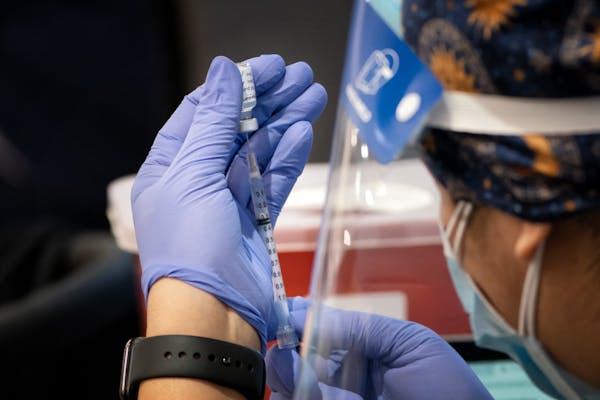Listen and subscribe to our podcast: Via Apple Podcasts | Spotify | Stitcher
They are a fixture of Minnesota's rural landscape: the huge, rolling metal sprinklers that spray giant plumes of water onto fields of crops, seemingly from dawn to dusk throughout the growing season.
Dan Wilm, a reader from Pequot Lakes, sees the devices — known as central pivot irrigation systems — running at what feels like a nonstop basis during drives around central Minnesota.
He turned to Curious Minnesota, the Star Tribune's community reporting project fueled by great reader questions. Wilm wanted to know: Why don't they run them at night instead? Wouldn't that be a more efficient use of water?
Turns out, most farmers do. Especially in a year like this one, with much of the state in a drought, including large swaths classified by the U.S. Department of Agriculture as severe, extreme or exceptional.
"Strictly from a standpoint of avoiding evaporation, it's always going to be better to have your system to run at night," said Jake Wildman, a crop farmer north of Glenwood and president of the Irrigators Association of Minnesota.
But, Wildman said, crops have needed a lot of water this year and central pivot systems need a certain amount of time to distribute it properly. That has most farmers sprinkling in the morning, noon and night.
It's a contrast to the typical advice for home gardeners and lawn care aficionados, who are usually urged to water in the early morning or later in the day to avoid wasting water through evaporation.
Wildman can monitor his central pivot system with a smartphone app. "I find myself waking up in the middle of the night to check on them, and checking them again the minute I wake up in the morning," he said.
Another reason nighttime hours are often needed is that most sprinklers are powered by electricity. Utilities typically make farmers turn them off for a few hours in the late afternoon and early evening, when demand for power is at its daily peak.
"Most are being made to shut the power off from probably 5 p.m. to 9 p.m., which is why much of the rest of the time they're likely going to be running," said Jerry Wright, a retired irrigation specialist at University of Minnesota Extension.
Crops like potatoes, sugar beets, beans and certain vegetables are very sensitive to lack of proper watering and can quickly fail if shorted even a little of the water they require.
"If the irrigation systems aren't covering the areas they need to cover in a timely manner, the crops go into stress, and very quickly you're looking at lower quality and lower yields," said Scott Sanford, emeritus agricultural engineer at University of Wisconsin Extension.
Or, as Wright put it: "You can't spread the water you need to in a day in just 12 hours."
Dave Nicolai, a University of Minnesota Extension educator based in Farmington, said there can be pitfalls to night watering. Certain crops are more susceptible to bacteria or fungus if they stay wet for too long.
And, Nicolai said, he knows some farmers who aren't as comfortable with complicated machinery running while they're asleep in their bed.
"They might be saying, 'This is a big machine, and I want to be able to see it myself when it's running,' " Nicolai said.
For most farmers who buy expensive irrigation systems, it's as an insurance policy against Mother Nature's unpredictability. But when rain does come, it often quickly accomplishes what takes an irrigation system days or even weeks.
"We got a nice bit of rain last night," Wildman said. "To the point that I don't think we're going to need to irrigate the corn crop again this year."
If you'd like to submit a Curious Minnesota question, fill out the form below:
Read more Curious Minnesota stories:
Tens of millions of dollars flow into State Fair coffers each year. Where does the money go?
Why are Honeycrisp apples still so expensive?
Why doesn't Minnesota's governor pardon the ceremonial turkey?
How do food scraps get recycled in Minn. — and how good are we at it?
Did German prisoners of war really work on Minnesota farms during World War II?
Was Minnesota once home to U.S. government-sponsored hemp farms?




